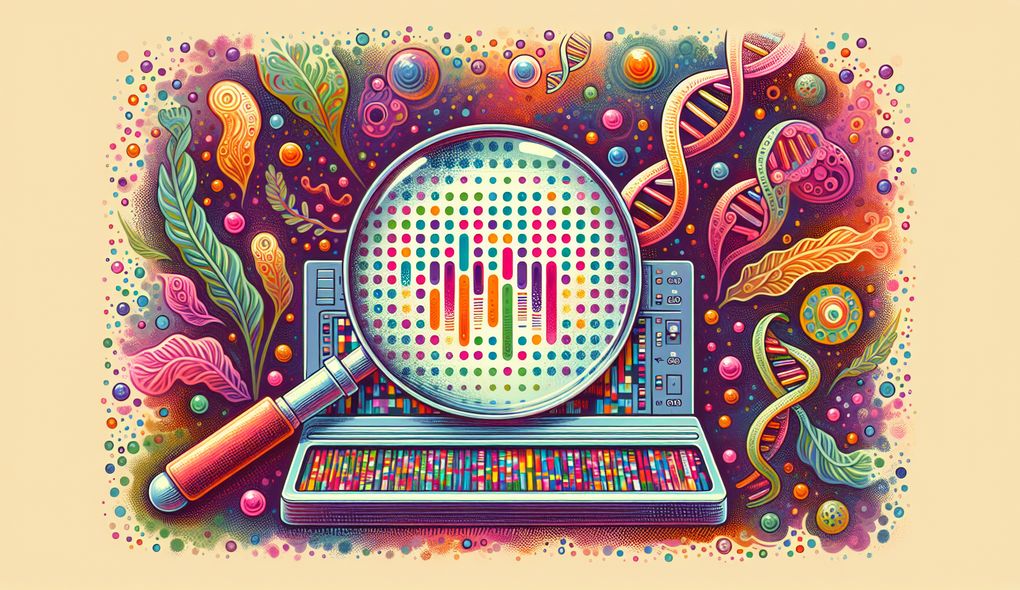Tell us about any experience you have with genetic data interpretation.
JUNIOR LEVEL
Sample answer to the question:
I have some experience with genetic data interpretation through my coursework in genetics during my undergraduate degree. We had a project where we analyzed genetic data from a mouse population and identified variations in gene expression using microarray technology. I used statistical software to analyze the data and create visualizations to present the results. It was a great learning experience, and it sparked my interest in genetic analysis. I also have experience working in a research environment where I maintained accurate records of laboratory procedures and results. I believe my basic knowledge in genetics and my experience with data analysis software make me well-equipped to interpret genetic data.
Here is a more solid answer:
During my undergraduate degree in Genetics, I had the opportunity to work on a research project focused on analyzing genetic data using microarray technology. This project involved studying the gene expression patterns of cancer cells and normal cells to identify potential biomarkers. I collected and processed DNA samples, performed microarray experiments, and used statistical software to analyze the data. I also contributed to the interpretation of the results and the preparation of a research paper based on our findings. This experience not only enhanced my understanding of genetic data analysis but also improved my proficiency in using microarray technology and statistical software. Additionally, I have experience working in a research environment where I was responsible for maintaining accurate records of laboratory procedures and results. I am confident in my ability to effectively interpret genetic data and contribute to research activities in this role.
Why is this a more solid answer?
The solid answer provides more specific details about the candidate's past project on genetic data interpretation using microarray technology. It highlights their contributions, such as collecting and processing DNA samples, performing microarray experiments, and using statistical software for analysis. Additionally, it mentions their experience in maintaining accurate laboratory records. However, the answer could still be improved by addressing the evaluation areas of laboratory practices and record keeping more explicitly.
An example of a exceptional answer:
During my undergraduate degree in Genetics, I had the opportunity to work on a research project that involved analyzing genetic data from a diverse population of individuals with diabetes. We performed microarray experiments to measure gene expression levels in different tissue samples and used statistical analyses to identify genes and pathways associated with the disease. I was responsible for designing the experiments, optimizing protocols, and analyzing the data using advanced statistical techniques. To ensure accurate results, I implemented stringent quality control measures and meticulously recorded all laboratory procedures and results in a digital database. The project resulted in a publication in a reputable scientific journal and provided valuable insights into the genetic basis of diabetes. This experience not only solidified my expertise in genetic data interpretation but also honed my skills in laboratory practices and record keeping. I am confident that my comprehensive experience and proven track record in genetic data interpretation make me an excellent fit for this role.
Why is this an exceptional answer?
The exceptional answer goes above and beyond by providing specific details about a research project involving genetic data interpretation in the context of diabetes. It mentions the candidate's involvement in designing experiments, optimizing protocols, and implementing quality control measures. Furthermore, it highlights the outcome of the project, namely a publication in a reputable scientific journal. This answer effectively addresses all the evaluation areas and demonstrates the candidate's exceptional expertise in genetic data interpretation.
How to prepare for this question:
- Familiarize yourself with microarray technology and its applications in genetic analysis. Understand the different steps involved in the process, such as sample preparation, hybridization, scanning, and data analysis.
- Brush up on your knowledge of statistical and data analysis software commonly used in genetic data interpretation, such as R or Python. Be prepared to discuss your experience with specific software, including any projects or analyses you have performed.
- Highlight any relevant coursework or research projects you have completed in genetics or a related field. Provide specific details about the techniques and tools you used, as well as the outcomes or insights gained from your work.
- Practice explaining your approach to maintaining accurate records of laboratory procedures and results. Emphasize the importance of attention to detail and how you ensure data integrity throughout the analysis process.
- Stay up-to-date with the latest advancements in microarray technology and genetic analysis. Familiarize yourself with recent studies or publications in the field to demonstrate your enthusiasm and commitment to ongoing learning.
- Prepare examples that showcase your analytical and problem-solving skills in the context of genetic data interpretation. Discuss challenges you faced during past projects and how you overcame them to achieve successful outcomes.
What are interviewers evaluating with this question?
- Genetics
- Data analysis
- Microarray technology
- Statistics
- Laboratory practices
- Record keeping
